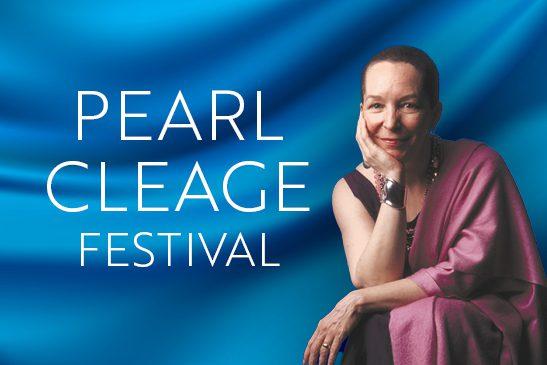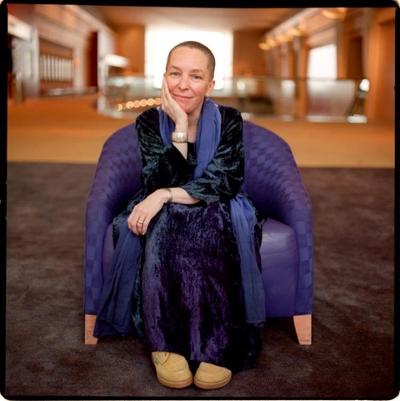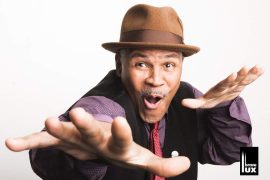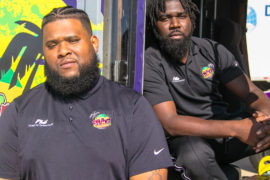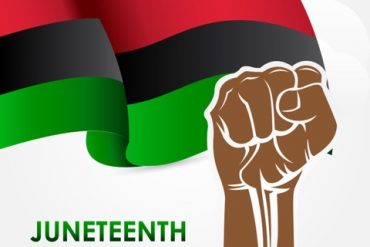As a celebrated author, playwright, and Poet Laureate of Atlanta, Pearl Cleage has enjoyed a distinguished career spanning 40 years, producing 30+ plays, novels, poems, and essays. With accolades from the New York Times (Best Seller) to the NAACP (Image Award) to Oprah’s Book Club, Cleage is beloved for her ability to bring the joys and sorrows of Black womanhood in 20th century America to vivid life.
Spearheaded by Artistic Director Susan V. Booth and BOLD Artistic Producer Malkia Stampley, The Goodman Theatre has put together The 2023 Pearl Cleage Festival, a first-of-its-kind month-long citywide celebration that aims to acquaint audiences with a fuller depth and breadth of Cleage’s work. The festival will include two centerpiece productions (Blues For An Alabama Sky and The Nacirema Society), readings, workshops, and other special events by Black Ensemble Theater, Congo Square Theatre, Definition Theatre, ETA Creative Arts, MPACCT, and more.
“As an actor, I was enamored by the depth of Pearl Cleage’s characters—one of the few playwrights to offer a cornucopia of roles for Black women of all ages and plays spanning decades, from drama and slapstick comedy. Ms. Cleage’s work speaks to the curious soul in all of us and reminds us of our capacity to love, fight, and dream,” says Stampley. “The Goodman is excited to amplify Cleage’s work, an honor long overdue. We celebrate the tremendous legacy Ms. Pearl has built and continues to expand.”
Cleage is the Distinguished Artist in Residence at Atlanta’s Tony Award-winning Alliance Theatre. Her play Angry, Raucous and Shamelessly Gorgeous had its world premiere as a part of the theatre’s 50th anniversary season in 2019 and recently completed a successful run at Hartford Stage. Booth directed both productions. Her other plays premiered at the Alliance include What I Learned in Paris, Blues for an Alabama Sky and Flyin’ West. Her first of eight novels, What Looks Like Crazy On An Ordinary Day, was an Oprah Book Club pick and spent nine weeks on the New York Times bestseller list.
N’DIGO recently caught up with the legendary writer to discuss her work, the festival in her honor, and why she no longer gets on airplanes.
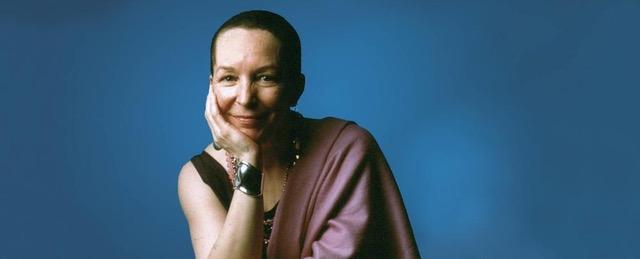
N’DIGO: What are three words you’d use to describe yourself?
Pearl Cleage: Curious. Disciplined. Loving.
Did you always know you wanted to be a writer?
I came here knowing I was a writer. When I was maybe two years old, I was already leaning over the side of my crib, telling stories to my sister. I always tell her this is her fault because she would listen to me.
Who were some of your writing influences?
Langston Hughes would have to be the first person I’d mention. Also, Lorraine Hansberry was big for me as well. Then, as I got older, I’d have to say Alice Walker. With Alice, when I became old enough to be questioning things about femininity and becoming a feminist, she was critical to me in what she was writing, The fact that we, as black women, had the right to question everything, to think about everything, to have really strong opinions that might make people angry and that we had the right, to tell the truth. And I can’t not mention Ntozake Shange, whose play For Colored Girls is an essential work to all playwrights and women of my generation. When you talk about someone who clarifies that you have to tell the truth, Ntozake is the one.
Please share your thoughts on the month-long celebration of your work currently happening in Chicago.
It’s so amazing and truly a blessing. They sent me a schedule of everything, and it’s really an honor to have that kind of focus and light put into my work. And I absolutely love that it’s happening in Chicago. I love the city so much. I’ve been there many times and have had great experiences with the theater community there.
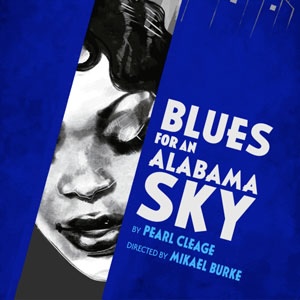
One of the centerpiece productions of the celebration is your play, Blues For An Alabama Sky, please tell us a little about the inspiration in writing it.
I had actually wanted to write a play about Langston Hughes and the Harlem Renaissance. Not necessarily about him, but about that period and I wanted to write a character who wanted to work with him and be his personal secretary. That particular idea didn’t really come together for me and I realized that I didn’t want to write about the heyday of the Harlem Renaissance when things were going good and artists could find ways to do their work. Instead, I wanted to write about what happens when all of that falls apart. How do you hold on to your dreams when the resources are not there? And then I came up with (main characters) Angel and Guy as a friendship and they were so interesting to me. The more I thought and read about that period, I realized that so many of the questions that they’re looking at and dealing with in that time are things we’re still dealing with now. Questions of artistic integrity. Questions of how do we support the work we do as black artists? Questions of a woman’s right to choose and what she does with her own body. Questions about religion and if you have the right to impose your views and beliefs on other people. Questions of gentrification. All of those things are still happening. I think it’s a part of why the play continues to be produced. It’s 25 years old and people are still finding something in it that speaks to them today, which is such a blessing for me as a playwright.
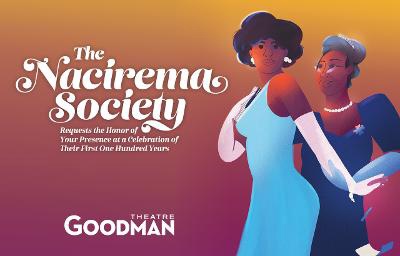
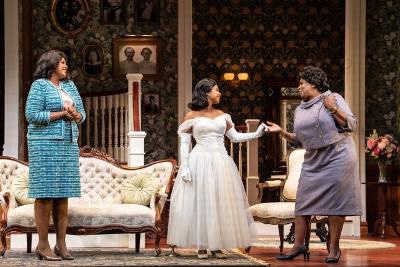
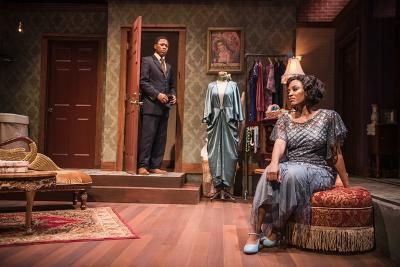
And please tell us about the other centerpiece production, The Nacirema Society.
The Nacirema Society is set in Montgomery, Alabama in 1963 and focuses on a family matriarch named Grace Dunbar, who has a cotillion coming up. She is part of a group, the Nacirema Society, that does a cotillion for young black women to wear their white dresses and come out into black society every year. It just so happens that this year, when the cotillion is supposed to happen, Dr. King and some other civil rights activists are coming to town for a voter registration drive. Grace is unhappy about it because she does not want to see her cotillion spoiled by a bunch of wide eyed radicals. But she also has a young granddaughter who is very supportive of the movement and wants to be a writer. She also has a friend with a young grandson who is in love with the young activist. The play touches on generational communication with granddaughters and grandmothers trying to communicate with each other. It touches on the fact that we are not monolithic as black people. Now, it seems like when we talk about the ’60s, we act like everybody was a radical supporting Dr. King, which isn’t true. There were a lot of people who really wanted things to go on quietly and not disturb the peace, which, of course, wouldn’t have gotten us anywhere. But also, at the heart of The Nacirema Society is a romantic comedy about two young lovers trying to navigate all the politics and family secrets and love each other. It’s not really a play about how hard it was for people to figure out the 60s. It’s really a play about how people who are determined to be in love can find a way to do that within the context of their family and their culture.
What are some of the things you love about Chicago?
The people. I love Chicago and have always had such wonderful experiences with the people there. Whether it was those working politically or artistically, it’s just a warm, bright, committed group of people in Chicago doing the work. I think it’s just an incredible place that exemplifies a real American urban environment and all the good things that come with that, like art and culture, but also has challenges. Like “What do we do about homelessness?” “What do we do about people who turn to violence because they can’t think of a better way? I’ve always found Chicago to be a welcoming, curious environment where people are always prepared to sit down over a glass of wine and talk until midnight. That’s my kind of town! I also really love the lake. I grew up in Detroit so we have the Detroit River, but we don’t have Lake Michigan. That’s very different.
What’s something people would be surprised to know about you?
I don’t like to fly. I take the train or drive everywhere I go now. I realized years ago while doing a book tour that I just don’t like flying. It felt like I was on a couple of planes every day, and I realized how much I hated it. Then I started taking the train. Also, my husband likes to drive, so we started driving everywhere. All across the country and up and down the coasts. I’ve found that traveling that way changes your idea about the country because you can actually see it. You see how beautiful the country is. You get to meet people in little tiny towns that you would ordinarily never see or come across.
Best advice to aspiring writers?
To get to the truth. To struggle through all of the stuff that’s gonna come at you that doesn’t have anything to do with telling the truth to people. So you must find the truth and have enough courage to tell it. Sometimes, we will know the truth, but we’re so scared to say it out loud because it might make somebody angry, or we may not get their approval. For a writer,, though, you have to be prepared for the risks. You have to be prepared to tell the truth because otherwise what’s the point? That doesn’t mean everything has to be serious or to beat you over the head with something like “This is what you should believe…” But at the heart of what you’re writing should be your understanding of conveying a truth to other human beings and they’ll receive it. When you tell the truth to people you can see them lean forward. They want to hear it. We all want to know the truth but most times we just have a hard time getting to it.
Favorite quote or affirmation?
It changes but I’ve been thinking a lot these days about a quote my friends in the Student Nonviolent Coordinating Committee used to say a lot which is “Freedom is a constant struggle“. It’s not something where you struggle for a while and you work really hard and then you say “It’s Tuesday. Freedom didnt come so I’m through with that.” It is a continuous effort. Some days I look at the news and say “Oh my God! What are we gonna do about this?” and you know sometimes you want to ignore it and leave the room but what happens if everyone does that? So yes, “Freedom is a constant struggle.” I think about that a lot.
What’s next for Pearl Cleage?
Most immediately, I have a new play opening in Washington D.C. that’s part of Ford’s Theatre’s Lincoln Legacy program. They commissioned me to write a play about a historical figure that I felt hadn’t gotten enough light and attention. It’s been 60 years since Atlanta elected Maynard Jackson as the first African-American mayor, so I wrote a play about that moment. It’s not specifically a biographical play about him, but more so about that moment of being elected and what that felt like and how that came together and how that changed not only Atlanta, but the landscape of the deep south in terms of what was possible politically. It’s called Something Moving: A Meditation on Maynard and I am really excited about it.
Both Blues For An Alabama Sky (Remy Bumppo Theatre Company) and The Nacirema Society (Goodman Theatre) run through October 15.
For more information on the 2023 Pearl Cleage Festival, please visit www.goodmantheatre.org/event/pearl-cleage-fest
